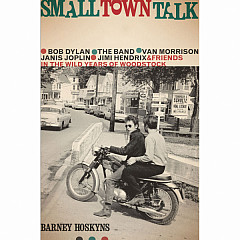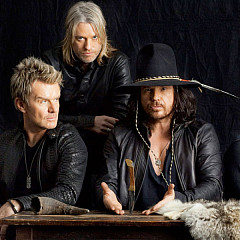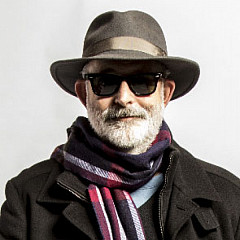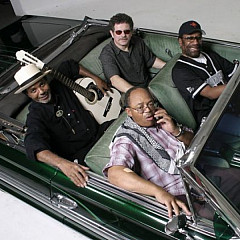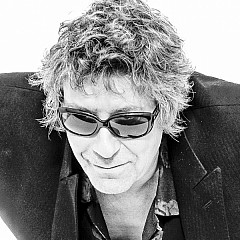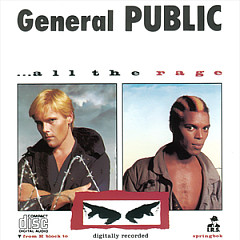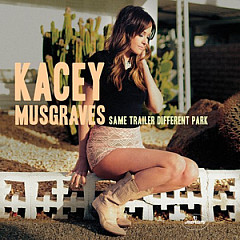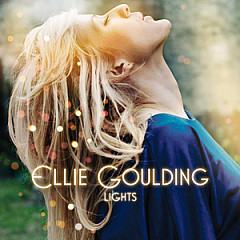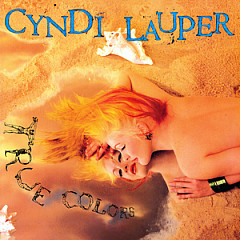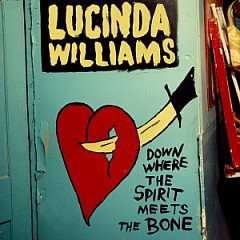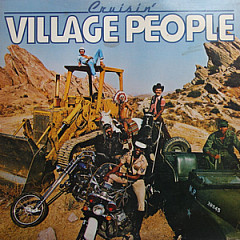
Armed with a Telecaster, Cropper has been an ace session guitarist and producer for decades, and on April 23, 2021 will issue a solo album, Fire It Up, a collection of groovy and soulful originals with Roger C. Reale on vocals.
Cropper spoke to Songfacts about his solo album, memories of backing others, and the real-life concert he played that inspired the chicken-wire scene in The Blues Brothers.
The record company, Mascot, actually said, "Can you get this finished before Christmas, so we can get it out before Christmas?" They had already missed the spring and fall release, and I'm so glad they held it off until this spring. I don't think any of us had any inkling that there was still going to be a lockdown.
That's where this album came from. Because we were on lockdown, I wasn't going over to Tiven's house and he wasn't coming over to mine anymore, but he has a studio in his house, so he had access to all these tracks. I just looked down the list of titles and said, "'Fire It Up' has the biggest meaning - 'let's fire it up.' Let's get everybody excited." And I think this album does.
 Cropper with drummer Nioshi Jackson (left) and producer Jon Tiven (right)
Cropper with drummer Nioshi Jackson (left) and producer Jon Tiven (right)Cropper's Collaborators
Jon TivenLike Chrissie Hynde, Patti Smith and Neil Tennant, Jon Tiven wrote about music before making it professionally. He's written for Rolling Stone and produced for Nick Lowe, Graham Parker, and Delbert McClinton.
"I enjoy writing with Steve, a wonderful guy and a one-of-a-kind songwriter," he says. "He comes over to my crib, he's got his trusty axe with him, I'll grab my Hamer bass off the wall, find a drum track or loop that sounds funky and we're off to the races. We don't beat it to death. If we can't nail it down within an hour of first stumbling upon something we like, next!
Steve will maybe put on a second guitar, and then I'll work on it to build up the foundation a little stronger with some horns and Hammond M1 and piano, then turn it over to Roger C. Reale to write words. Roger sends me his vocal, I pop it in, upload it and shoot it over to Eddie Gore who's our engineer and runs Steve's studio. Then Steve will go in with Eddie and finesse his guitar lines, maybe add some other touches, and voilà, a song is born."
Roger C. Reale
 Fire It Up vocalist/lyricist Roger C. Reale is a mainstay on the Connecticut music scene and a primal rock pioneer from his days in the band Rue Morgue - check out his breakdown of 10 primal rock classics. He puts Cropper in the ranks of the top living guitarists, along with Chris Spedding, Jeff Beck, Brian May, Buddy Guy and Jimmy Page.
Fire It Up vocalist/lyricist Roger C. Reale is a mainstay on the Connecticut music scene and a primal rock pioneer from his days in the band Rue Morgue - check out his breakdown of 10 primal rock classics. He puts Cropper in the ranks of the top living guitarists, along with Chris Spedding, Jeff Beck, Brian May, Buddy Guy and Jimmy Page."I was, of course, terribly excited when he asked me to be a part of his new album, and that was on the strength of the early demos from Jon and me that he heard," he said. "We emailed back and forth, and spoke a few times over the phone. They are based in Nashville; I did all my work from my home in Connecticut. It should be noted that Crop never directed me as to what he thought the record should sound like - quite the opposite. I had full reign on my end, and I basically wrote as I felt, no attempts to make it sound like anything other than the present. Of course, I knew full well, and was certainly excited, to hear what Crop would do after I was done, and that was magical.
In the end, if an opportunity to work with a guitarist such as Steve Cropper presents itself, you have to be ready, and I think these songs deliver in a big way. Like Crop told me early on, "There's nothing like this out there now."
Cropper: I know we did what we did, so the making of the record was definitely intentional. Whether we had the cleanliness in mind, I would say no. It was not on our head.
The thing about "In the Midnight Hour," "The Jerk" was out - that was the big dance. They were trying to do The Jerk in the studio, that pulling-down motion, and that's where the heavy backbeat came from.
They actually took that record and flew Al Jackson up to New York and overdubbed the snare to get a bigger backbeat. And I had a trick. They said, "If you didn't use headphones and you have the doppler effect, how are you so tight with the drummer?" And I said, "That's real simple. I watch his left hand." I just came down when he came down, so we were dead together. The playback was great. But if you played normally, just listening to what you were hearing at the time, it would be a big slapback thing and it probably wouldn't go together.1
Songfacts: What's the best cover song you played on?
Cropper: Probably Booker's idea to do "Summertime." And when we did the tribute to Les Paul, I picked that song, and the band said, "That's a great idea." That was a good ol' Les Paul song.
 Songfacts: What's the hidden gem in the Otis Redding catalog?
Songfacts: What's the hidden gem in the Otis Redding catalog?Cropper: The first time I heard him sing, he did "These Arms of Mine," and the thing about Otis is, we had 17 hits in a row - R&B hits. Some of them went to #1, some of them didn't, but they still generated income - that was good enough for us to do another record.
So, the hidden gem in his catalog, I'd have to really think about that. There's so many, but there are two songs he did that I really loved. One was "A Change Is Gonna Come" and the other one is "Cigarettes and Coffee." His version of "Shake" that we did - the Sam Cooke song - wow.
Otis sessions were a lot of fun. He was the only artist I remember recording at Stax that the band could not wait for him to come back. And they never did that with anybody - it was work, it was a job, and that's what they did. We all had fun making music - we had a good time - but they could not wait for Otis to come back to record because we had so much fun.
Songfacts: Would you agree that Otis was the greatest soul singer of all time?
Cropper: Probably. Between him and Sam Cooke. If you took half a jar of Little Richard and a half a jar of Sam Cooke, shook it up and poured it out, you'd get Otis Redding. Because he could croon like Sam and he could boogie like Little Richard.
Songfacts: What do you think it was about the '60s that gave us so much great music? You had Otis Redding, the Beatles, Jimi Hendrix...
Cropper: We were very lucky to grow up in that time period. The music was evolving and changing the world. We didn't know we were changing anything, we were just having fun making music. We did have one thing in mind: We wanted to get a hit record. In those days, anything that hit the Top 10 was a hit record. And if it went to #1... wow. We had several that did that.
We were just used to it. I guess you get used to winning games like a sports team - you do it over and over. But we had a lot of flops as well. I wrote some hit songs, but what about those 300 that didn't make it? [Laughs]
Cropper is the rare session musician who got namechecked in one of the hits he played on: "Soul Man." At the 1:15 mark, Sam Moore says, "Play it, Steve!" when Cropper hits a guitar lick.
Cropper: We never did play "Boot-leg" much, but we played "Hip Hug-Her" a lot.
Booker and I would get together after I'd fix everything, because they were just tracks until we mixed them, and we'd come up with titles. And Booker came up with the idea of, "Let's call it 'Pedal Pushers.'" I said, "Nah. That's old history." He said, "How about 'Hip Huggers'?" And I said, "That's fine... if I can change the spelling." So, I wrote it "Hip Hug-Her."
Songfacts: What was the most fun song to perform with The Blues Brothers?
Cropper: That's a toughie - every song we do is a lot of fun. And now with the current band on the road, everything we do is from the songs we have the most fun playing - that's the show we do now.
The toughest thing about The Blues Brothers show is cutting it down. They only want 60-90 minutes - our show can run to about two hours and 10 minutes! But one good thing about that band is we always pay close attention to the members, give them their due, invite them out and introduce them at the end of the show before we do our finale.
Songfacts: What do you recall about touring with Neil Young in 1993?
Cropper: Two things come to mind. One is it was probably one of the most organized shows Neil Young ever did. The other is we were playing the outdoor venue in Detroit, Michigan. That's when he had Harvest Moon. And my tech said, "Look up there." I look up, and a big old full moon was coming up. A big harvest moon was coming up over that show. That blew our minds. Somebody up there is watching, I guess.
Songfacts: Favorite scene of The Blues Brothers movie that you were in?
Cropper: The problem is, line-wise, I had nine to start with and they cut it down to six lines or less. [Dan] Aykroyd wrote it, so we had little quick one-liners. We didn't have whole monologues to learn, so that was a good thing. I remembered most of my lines - it was so few that it was easy to remember. Doing the whole movie was a lot of fun.
Cropper: That's one of my favorites, too. The other one was when Lou [Marini] says, "Chicken wire?!" That was a reality when we were growing up. I told Danny [Aykroyd] about the chicken wire and all that - that was to protect the instruments. It had nothing to do with the film with the throwing of beer bottles. It made sense in the movie, but the reality was because musicians weren't able to afford drums, pianos, microphones, and all that, when a fight broke out, they'd get tore up.
So, some of the owners put chicken wire over the stages for when a fight broke out. I played one of those clubs one time. I remember sailors came in and said, "We're going to kick some of these country boys' butts." We were close to the naval base in Millington, Tennessee. The sailors would show up and they were going to "Kick these farmers' butts." I think it went the other way.
April 19, 2021
Cropper's website is, appropriately, playitsteve.com.
Further reading:
Interview with Booker T. Jones
Otis Redding Songfacts
Stax Today
Interview with Commodores founder Thomas McClary
Remembering Jimi Hendrix and John Bonham
photos: Michael Wilson
Footnotes:
- 1] A "slapback" is a delay effect on the guitar, which when listening through headphones - at least in 1965 - could cause timing problems that Cropper solved by using his eyes. Jon Tiven explains: "There's a point where the delay would help the track and there's another point where it would interfere with the groove, and the trick was to push it as far as you could to get the slapback without losing the groove. Al Jackson let his snare hit ever so slightly behind the beat, so if he was overdubbing he couldn't alter the amount he was late by - and we're talking about fractions of milliseconds." (back)
More Songwriter Interviews

